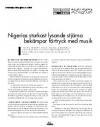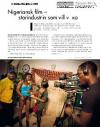Beyond territory and scarcity : exploring conflicts over natural resource management
| Medarbetare: | Gausset, Quentin | Whyte, Michael | Birch-Thomsen, Torben |
|---|---|
| Utgivare: | Uppsala : Nordiska Afrikainstitutet |
| År: | 2005 |
| Ämnesord: | Resources management, environmentel degradation, natural resources, conflicts, boundaries, Living conditions, Burkina Faso, Cameroon, Dmocratic Republic of the Congo, Ghana, Lesotho, Niger, Nigeria, Senegal, Sudan, Social anthropology, Socialantropologi |


